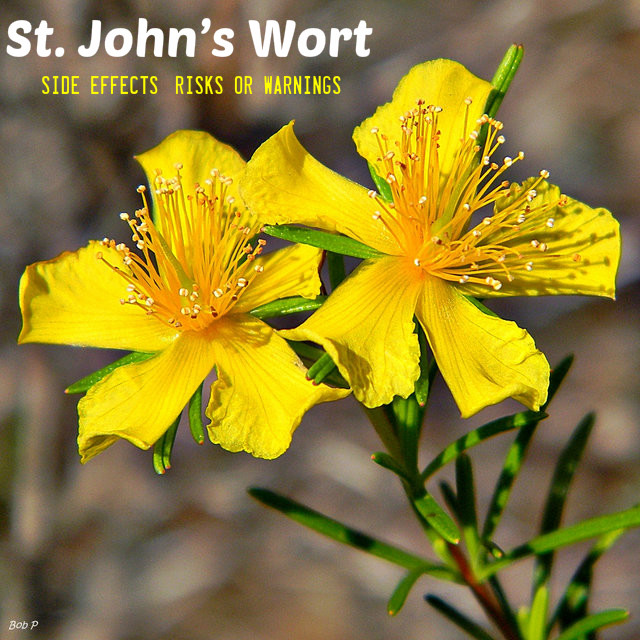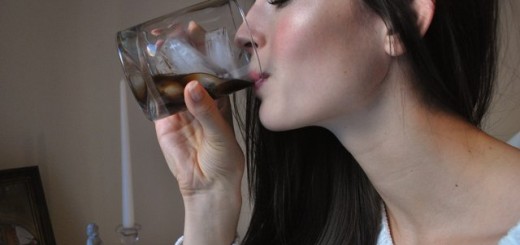St. John’s Wort: Side Effects, Risks or Warnings
Herbal products are very popular as they claim ‘100% authentic’ nature. Just put this label on any product and it will soon grow in popularity. This is what made the over-the-counter St. John’s Wort medicines also. But are natural products safe? Let us find out.
Side Effects of St. John’s Wort are as follows:
Natural herbs like the one discussed here are always very appealing to the people. But their usage has always been under scrutiny. The herbal supplements are not regulated by The Food and Drug Administration (FDA). Because of this reason, you may be at the risk of suffering from some potentially harmful herbs that are available in every pharmacy and store.
The side effects are very common in some of the antidepressants like St. John’s Wort. According to a study made by Clinical and Experimental Pharmacology and Physiology, if you use unprescribed and uncontrolled dosage of St. John’s Wort, you may suffer form a lot of adverse reactions. Here is how it can affect you:
Can cause tissue rejection:
People who are undergoing organ transplants should avoid taking St. John’s wort. In several cases, self medication with this herb has given rise to severe drop in plasma levels of cyclosporine, resulting in tissue rejection.
Can interfere with your medication:
This medicine can interfere with several medicines. This is one of the first and primary concerns regarding this herb. St. John’s wort enables the body to produce enzymes that help in cleaning the bloodstreams faster. This makes them devoid of certain chemicals. This process, which is called enzyme induction, is responsible for robbing the medicines of their power. This herb, like fluoxetine, can prevent the reuptake of the essential hormone serotonin.
St. John’s wort also interferes with the working of a number of common pharmaceuticals as well. It is known to interact with prescribed antidepressants, anticoagulants, oral contraceptives, anti-seizure medicines, anti-ejection drugs, heart and cancer medications. Since this medicine can react with the medicines used during surgery, it is recommended that you stop using this medicine at least one week before your surgery.
Can elevate blood pressure:
When st. John ’s wort is combined with monoamine oxidase and selective serotonin reuptake inhibitors, it can lead to an increase in the blood pressure, which can eventually lead to stroke. An overdose of this can also cause serotonin syndrome. The symptoms of this disorder include agitation, confusion, shivering, rapid heart rate, fever, muscle spasms, diarrhoea and perspiration.
Can make birth control pills ineffective:
Those on contraceptives should never have St. John’s wort. This is because this herb can make contraceptive pills ineffective. Many women on contraceptive pills and taking St. John’s wort are said to suffer from excessive bleeding and nausea. So if you take both of these together, it can result in unwanted pregnancies as well.
Can worsen mental disorders:
When St. John’s wort is taken with methylphenidate, it can add to the symptoms and make things worse. Regular use of this herb is also said to increase the risk of psychosis in people who have schizophernia. It can also cause dementia in people who suffer from Alzheimer’s disease. If you have bipolar disorder, this herb is extremely harmful.
May cause excessive hair loss:
Using St. John’s wort regularly can lead to excessive hair loss, as in the case of several other antidepressants. The best solution for this is to consult your doctor and get the dosage prescribed by him.
Should not be taken by pregnant and breast feeding women:
They should avoid taking this medicine because of the adverse effects of this medicine on the brain neurochemistry and normal balance. It is possible that a high dosage of St. John’s wort may cause some harm to the baby.
Should be avoided by people who are photosensitive:
People who are naturally photosensitive should completely avoid this medicine because it can intensify the effect. Using St. John’s wort can make you hypersensitive to sunlight. This condition is called photodermatitis in scientific terms. The problem is enhanced when you take this medicine with other medicines that are known to increase sun-sensitivity, like sulfa drugs, piroxicam, omeprazole and lansoprazole. Prolonged use of St. John’s wort is also said to cause sun induced cataract in people. The solution for this is to wear a sunscreen with SPF 15 or higher, and covering clothes whenever you go in the sun. You should also avoid sun lamps and tanning beds.
Should not be used to treat severe depression:
Although this herb is used for treating depression, it should not be used if the situation is quite serious. This means when depression starts meddling with your daily life or when you start having suicidal thoughts. The risk of mania is said to be very high in people who are suffering from severe depression and are on St. John’s wort.
The right thing to do is to see the doctor immediately and get the right diagnosis, instead of relying on this herb to do its magic.
Foods to avoid when taking St. John’s wort:
As the saying goes, prevention is better than cure. This is very true when you use herbal medications like St. John’s wort.
You should completely avoid the foods and beverages given below when you are on St. John’s wort.
- Coffee and tea
- Chocolates
- Wine
- Fava beans
- Beer
- Smoked/pickled foods
- Salami
- Cheese
- Yogurt
- Aged meat
- Overripe avocados
Recommended dosage of St. John’s wort:
Children and young adults (below 18 years)
- For ABHD – 300 mg, thrice daily for 8 weeks
- For depression – 150-1800 mg thrice daily for 8 weeks.
Adults:
- For anxiety – 900 mg of the medicine twice daily for 12 weeks.
- For cancer – 0.05-0.50 mg per kg of hypericin for 2 months.
- For mild to moderate depression – 20-1800 mg thrice for4 to 52 weeks.
- For OCD – 450-1800 mg once daily for 12 weeks.
- For menopausal symptoms – 300 mg three times daily for 12 weeks.
- For premenstrual syndrome – 300-900 mg daily for two menstrual cycles.
- For smoking cessation – 300 mg once or twice daily for three months.





Some of the dishes of St. John’s wort listed here WILL cause photosensitivity. More than 900 mg a day absolutely will do this.